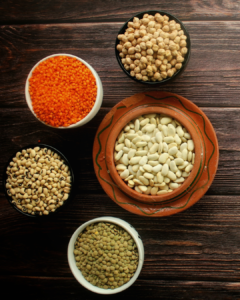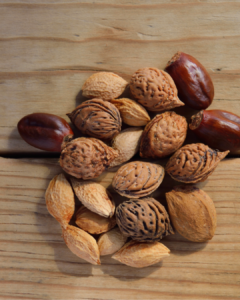Inflammation is part of everyday life for someone living with an autoimmune disease. Currently, no single diet can cure or effectively manage all autoimmune diseases.
Some diseases require different diets, others have certain food restrictions that must be followed, and for others, it is simple trial and error to see how the body responds.
For those without a specific diet or food restrictions, some specific foods have nutrients that have been shown to fight inflammation. These include omega-3 fatty acids, vitamin D, turmeric, cinnamon, garlic, fermented foods, green tea, and sulfur.
Strong research supports the role of the foods below in managing inflammation symptoms. Making specific changes, such as swapping one type of food for another, effectively adds these nutrients into a daily diet and supports gut health. Everyone’s body is different, and not everyone will have the same experience, so making a couple of changes at a time is helpful. This will make monitoring how the body reacts to these foods easier.
 Fruits
Fruits
-
- Apples
- Berries
- Citrus fruits
- Pineapple
- Red grapes
 Vegetables
Vegetables
-
- Cruciferous vegetables (broccoli, cauliflower, brussels sprouts, kale, cabbage)
- Fermented vegetables (kimchi, sauerkraut)
- Garlic and onions
- Leafy greens (spinach, chard, arugula, collards)
- Swap – Coleslaw for kimchi
- Swap – Iceberg lettuce for cruciferous vegetables
 Protein
Protein
-
- Beans and legumes (kidney beans, black beans, lentils)
- Fatty fish (salmon, trout, anchovies, sardines, tuna)
 Fats
Fats
-
- Nuts (almonds, walnuts, brazil nuts)
- Oils (olive and coconut oil)
- Seeds (flax, chia, sunflower)
- Swap – Chips or salty snacks for nuts
 Pantry Foods
Pantry Foods
-
- Green tea
- Honey and maple syrup (keep maple syrup in the fridge after opening)
- Spices (cinnamon, curcumin, turmeric)
- Whole and ancient grains (farro, quinoa, brown rice, oats, amaranth, barley, millet, bulgur, buckwheat)
*If you have a gluten allergy, choosing gluten-free grains is essential to avoid any adverse reactions.
-
- Swap – Salt for herbs and spices
- Swap – Coffee for green tea
Note: For more information on an anti-inflammatory diet, click here.
Whether a person has an autoimmune disease or is at risk due to family history, they should be mindful of these seven additives found in certain foods. Understanding these additives, how they’re used, and their potential effects on the body can help take control of their health by making informed decisions about what foods they eat.
Research in this area is ongoing, but the theory is that certain additives can damage the gut barrier protecting the intestinal lining. Over time, the damage could worsen and increase the risk of autoimmune diseases associated with the gastrointestinal tract.
Note: Click here to read more about the link between food additives and a rise in autoimmune diseases.
Emulsifiers are additives that blend ingredients like oil and water without separating. A common ingredient is lecithin, found in baked goods, desserts, ice cream, dairy, fats, and oils.
Gluten is a food additive used to improve the texture and volume of processed foods. However, it can also cause inflammation in the gut and affect the small intestine’s lining.
Microbial transglutaminase is an additive used as a food glue to hold processed meats, fish, and baked goods together.
Nanometric particles are tiny particles that improve taste, color, uniformity, and texture in food packaging. They are added to whipped cream frosting and Pop-Tarts to enhance the white color. Beware that these particles are often not listed on food labels—a reason to avoid highly processed foods altogether.
Organic solvents are additives that stabilize, preserve, and flavor food products. Common ones to look for are hexane, benzene, and trichloroethylene (TCE). Strong evidence suggests that long-term exposure to these additives causes inflammation in the body.
Excessive salt in our diet (more than 2,300 milligrams mg per day) can affect blood pressure and heart health, but new research shows a connection between salt and autoimmune diseases. Eating more than the recommended amount can speed up the progression of an autoimmune disease.
Artificial sweeteners are zero- or low-calorie substitutes for sugar that tastes sweet.
Takeaway: Although there’s no known cure for autoimmune diseases, nutrition plays a huge part in managing the symptoms of inflammation. Adding fresh, nutrient-dense foods while cutting back on unprocessed foods that may trigger and aggravate the symptoms can make a huge difference. Medical research is continuously finding new and hopeful information. Checking in with a doctor, monitoring medications, and making small changes in the daily diet can significantly and positively impact the quality of life for those with an autoimmune disease.
